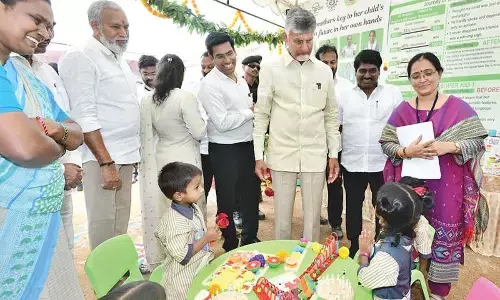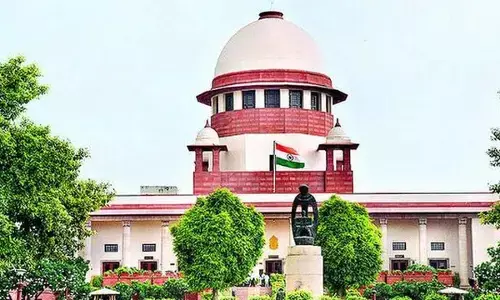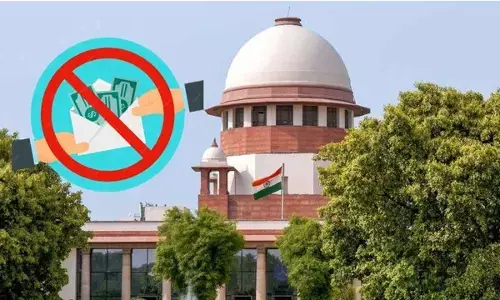Arbitrary urbanisation throws up many challenges

Arbitrary urbanisation throws up many challenges
We have recently seen Hyderabad reeling under the impact of floods once again just like Chennai and Bengaluru were doing in the past
We have recently seen Hyderabad reeling under the impact of floods once again just like Chennai and Bengaluru were doing in the past. These are all cities that could at the best represent the civic collapse in the country. The impact of the floods in Hyderabad also badly affected the prospects of the ruling Telangana Rashtra Samithi (TRS) in the civic elections held recently.
Chief Minister K Chandrasekhar Rao expressed his unhappiness with the work of the Greater Hyderabad Municipal Corporation (GHMC) officials. It sounds a bit odd that the Chief Minister chose to blame the civic officials for the problems of Hyderabad. Floods in Hyderabad were a result of bad planning of the city over the years. Encroachments of its water bodies - plenty of them - and repeated paving of the city with cement as part of 'development' and the encroachment of nalas led to the disaster and this will recur in the future.
This problem is not peculiar to Hyderabad alone. The world is witnessing urbanisation at an unprecedented pace and scale today, setting off several challenges to policymakers and planners. The challenges are on several fronts — social, demographic, environmental and economic — to redesign and develop burgeoning cities into vibrant, environment-friendly urban areas that provide access to resources and basic amenities to all citizens on an equitable and sustainable basis.
Therefore, the need of the hour is to implement the "New Urban Agenda" by pursuing appropriate policies and addressing the challenges in terms of physical spaces and other issues for urban, peri-urban and rural areas at all levels — international, national and local. Sustainable urbanisation means sustainable development by putting in place the right policies, providing urban-rural linkages and inter-linking social, economic and environmental dimensions to make societies more prosperous and inclusive.
Even if any ruling party has only a political vision for its capitals and other cities, such an adherence to the urban development policies will certainly help the leaders achieve their political goals too. Sadly, even in this, they don't seem to be sincere. The unprecedented urbanisation can't be reversed even if one wishes to do so. While cities and towns occupy only 2 percent of the total land, they contribute 70 per cent of the GDP — they are the main engines and drivers of growth. However, this galloping urbanisation is also throwing up several challenges.
For instance, cities and towns consume 60 percent of global energy and contribute 70 percent of greenhouse gas emissions. There is a need for a plan of action to achieve such sustainable human settlements. It should ensure adequate shelter, water, energy, sanitation and solid waste management, along with other elements. The New Urban Agenda emphasises the need to focus on these challenges.
The need for the UN-Habitat was discussed in the UN General Assembly in 1978 to promote socially and environmentally sustainable towns — these well-planned cities and human settlements will require housing, infrastructure, education and employment facilities and would also provide access to basic services like water and sanitation. It's high time our rulers got back to the planners.
















